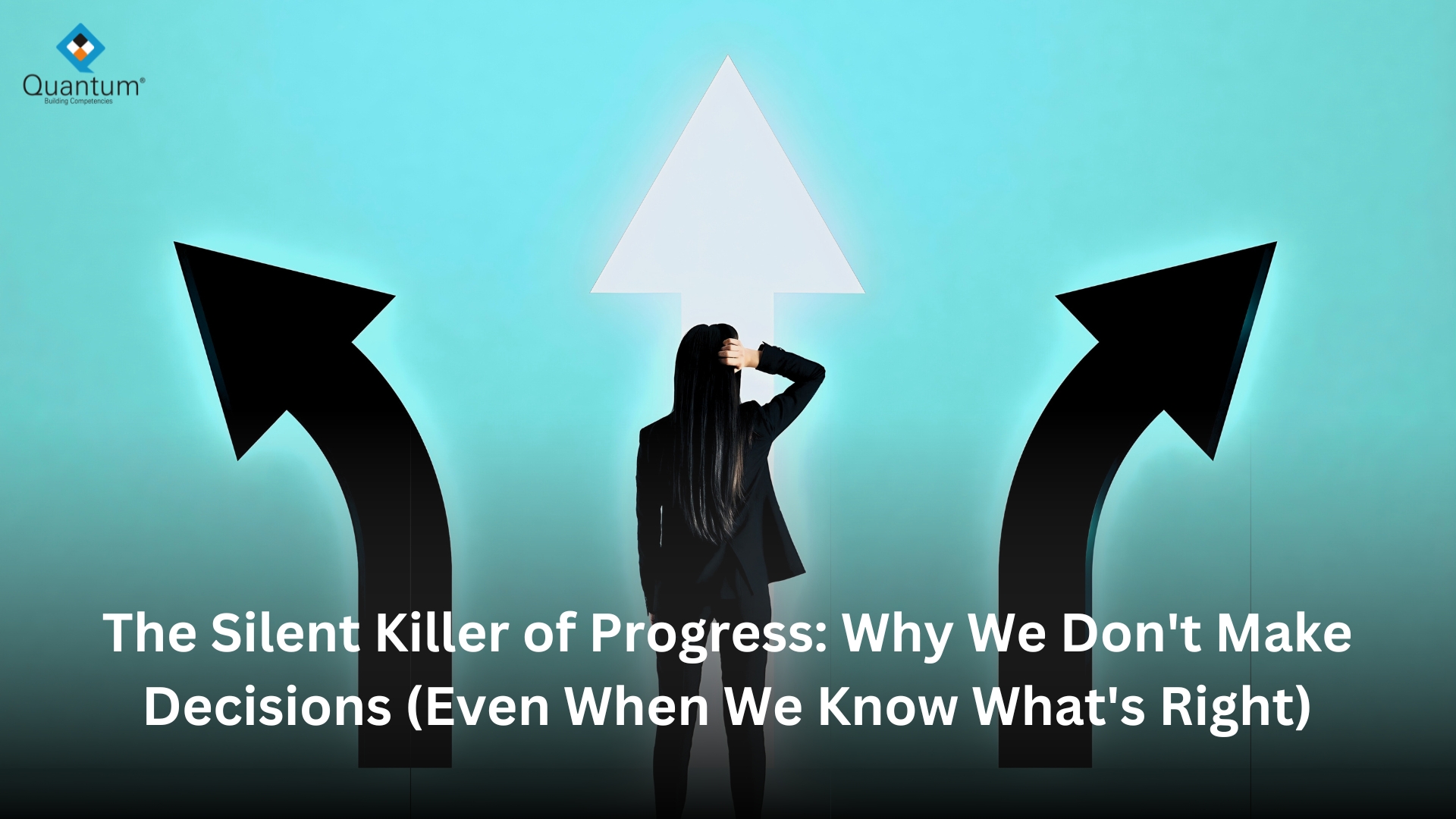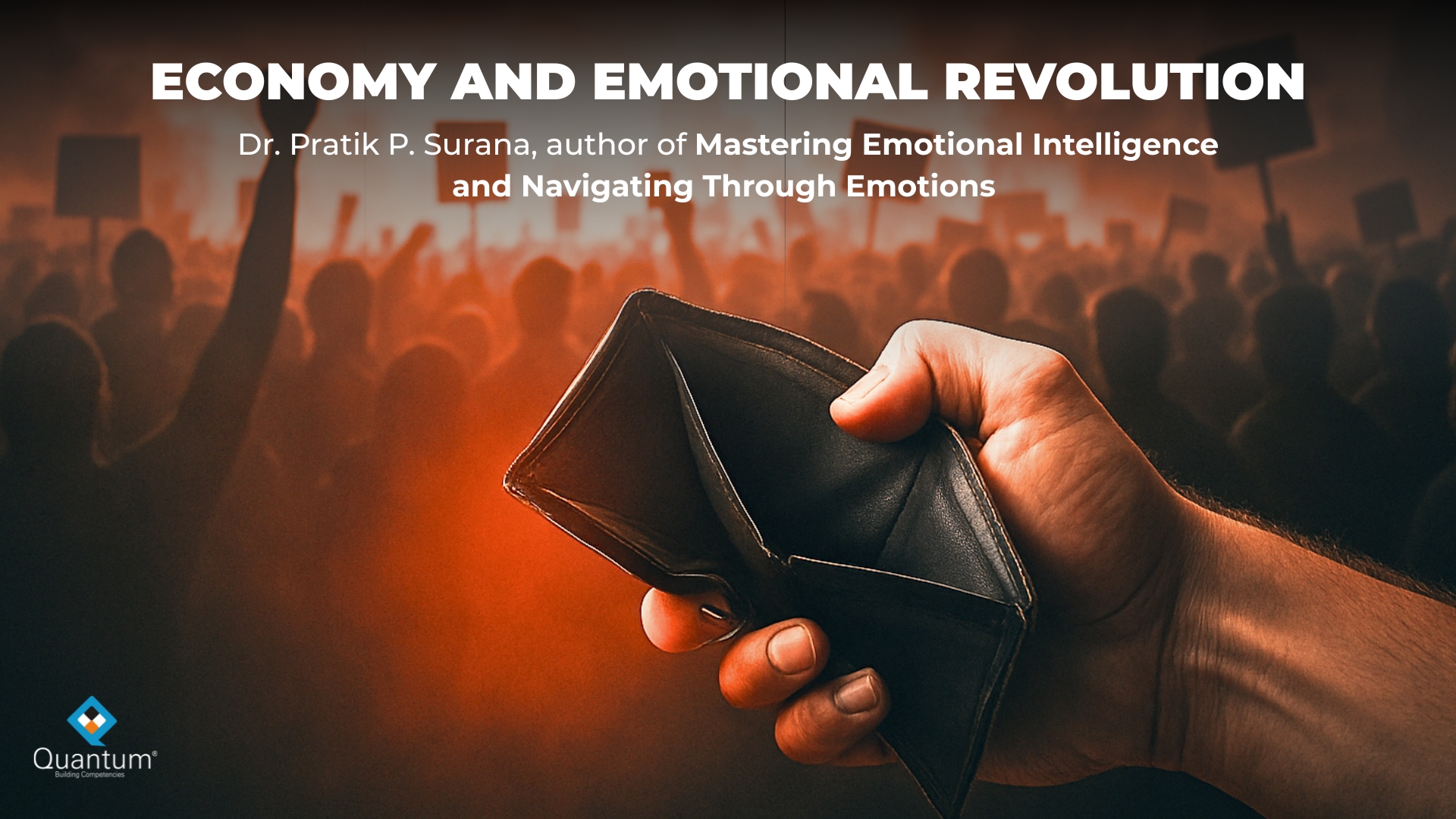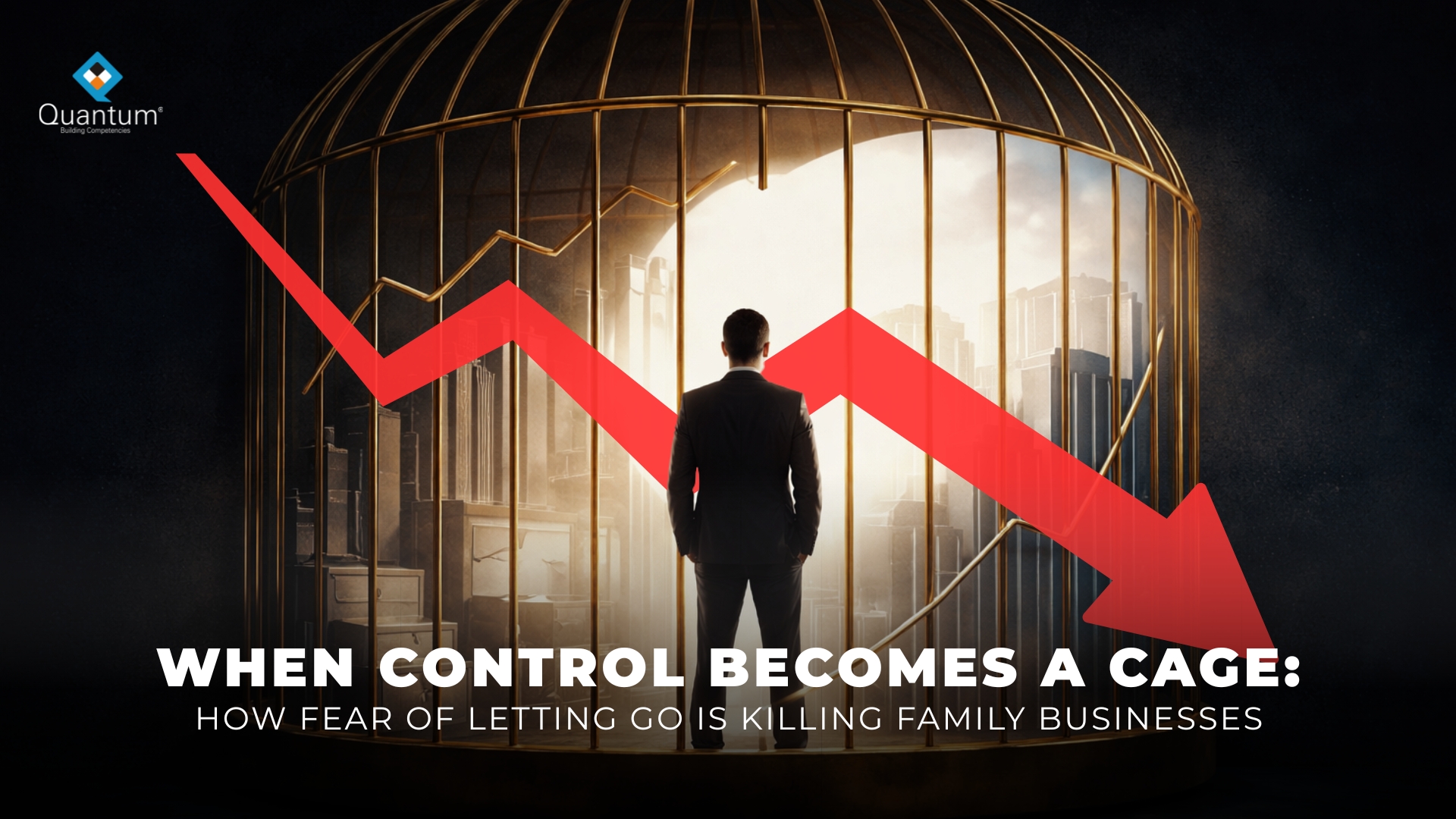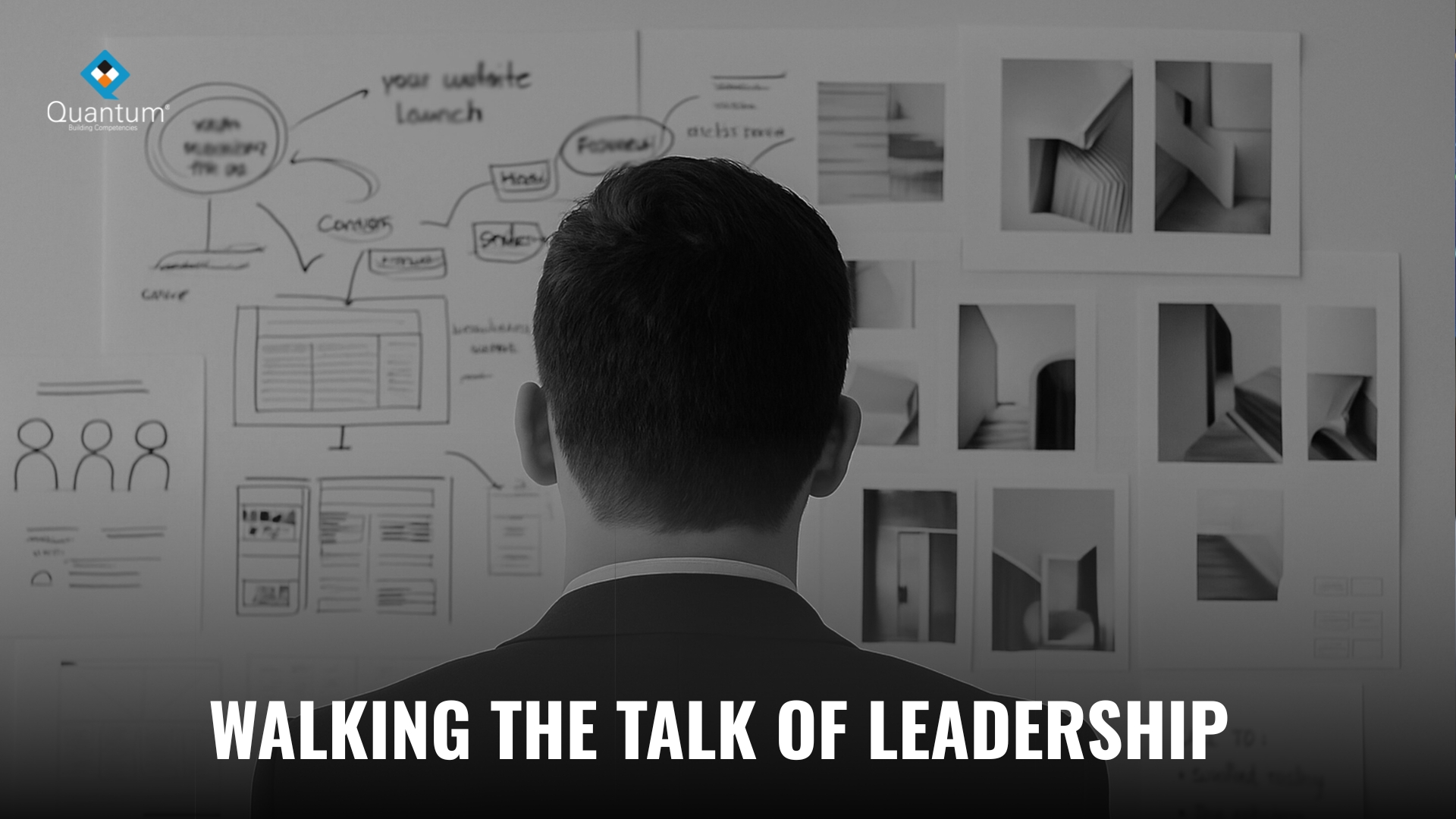
The Silent Killer of Progress: Why We Don’t Make Decisions (Even When We Know What’s Right)
The Monday Morning Meeting, Scene 1 CEO: “So, are we going to go ahead with the launch of the new

The Boiling Point: When Economic Despair Turns into Emotional Revolutions By Dr. Pratik P. Surana, Author of Mastering Emotional Intelligence and Navigating Through Emotions
When Empty Pockets Turn Into Loaded Guns
In my presentations and publications, I’ve mentioned many times that emotions are the real money of the world. When emotions crash, they don’t just cause recessions like money does; they cause revolutions.
When economies fail and jobs go, you don’t just have “jobless youth”; you have “restless youth” who are scared, angry, and unsure of what to do. This mental pressure cooker will eventually blow out.
And when it does, it doesn’t simply mess up societies; it brings down governments.
We’ve seen this happen enough times in history to know it’s true, but the world keeps doing the same thing.
The Desperation Domino Effect
Rational conversation breaks down when people are hungry and out of work.
The mind, which is scared and helpless, looks for quick cures and loud voices.
This is when manipulative leaders step in, giving people easy enemies to blame and false promises of salvation.
“When reason sleeps, emotion becomes a weapon.”
Take a look at the past several years:
Tunisia (2011) – The Arab Spring started when a street vendor did something desperate, which changed politics in the Middle East.
Bangladesh—Mass protests have shaken the political foundations because of rising unemployment and inflation.
Nepal—Recent Gen Z revolution against Nepo kids and corruption and earlier long-lasting Maoist insurgency and ultimate regime change were caused by political instability and a lack of economic prospects.
These weren’t just political occurrences; they were emotional eruptions caused by deep economic and social despair.
Europe and the UK: Scared Across the Sea
Fear isn’t just a problem in developing countries.
Across Europe and the UK, there are anti-migrant protests, violent conflicts, and a growing number of people who are afraid of foreigners.
It looks like it’s about migration at first.
But if you look further, you’ll find that economic anxiety is at the heart of it.
People feel trapped because of job losses caused by automation, global competition, and bad government. Instead of dealing with the genuine problems, leaders redirect that anger towards migrants, making them look like the bad guys.
It’s easier to blame the person at the door than the system within the house.
This kind of emotional manipulation leads to hate and violence, and it also distracts people from seeing the bigger issues that are getting worse.
The Parts of Emotional Unrest
In my book Navigating Through Emotions, I talk about how group emotions can be like individual breakdowns.
This is what happens on a large scale:
1. Economic Pain: Inflation, unemployment, and a lack of job possibilities are all on the rise.
2. Emotional Stress: Worrying about the future turns into rage.
3. Blame Game: Leaders or movements find an opponent, “the other,” to direct their anger upon.
4. “Mob Mentality”: People stop thinking logically and just act on their feelings.
5. Explosion: Protests, rioting, and sometimes a change of government.
We’ve seen this cycle happen in Venezuela, Sri Lanka, France, and many other places. It’s not just a theory.
Scene: A Teen’s Outburst
Picture a 24-year-old who just graduated in Dhaka.
He is smart, driven, and looking for work.
He looks at his phone and sees politicians living in luxury while his family skips meals.
Every day, the hopelessness grows.
He goes to a rally one night. At first, it’s calm. But as the chants get louder, fear transforms into anger.
Things get out of hand when a stone flies and then tear gas follows.
He didn’t want to overturn a government that day, but the feelings of everyone else pushed him to do it.
This is what political upheaval looks like for people.
It’s never simply about policies or ideas; at its core, it’s about broken emotional contracts between people and their leaders.
The Fear Psychosis in the West
The same kind of desperation is happening in Europe and the UK, but in a different way.
In this case, the outburst isn’t aimed against the ruling elite, but towards “outsiders.”
Certain politicians and groups have cleverly used people’s fear of losing their jobs and cultural identity as a weapon.
What happened?
Riots against migrants. Movements that use violence. Growing splits in society.
It’s an emotional conflict that is fuelled by economic instability and geo-political narratives.
People will look for simple answers, even if they are dangerous, as long as they feel frightened and unheard.
What Manipulative Leaders Do
Leaders are good at the game.
Instead of dealing with unemployment, inflation, or inequality, they widen emotional gaps.
They make heroes and villains and use people as pawns in their political chess games.
In my book Mastering Emotional Intelligence, I talked about how real leaders need to be able to see things from other people’s points of view and have a vision.
Sadly, what we see a lot of these days are “emotional puppeteers” who are good at using fear and hope to keep people in line.
The Next Step: Using Emotional Awareness as Resistance
Emotional literacy is the only long-term answer, both for individuals and for groups.
People need to know when someone is trying to control their feelings.
This is what cultures need to pay attention to:
Economic Reforms: Deal with the root causes of unemployment and inequality.
Education: Teach emotional intelligence along with technical skills.
Media Responsibility: Stop making money by sensationalising fear and anger.
Leadership Accountability: Hold leaders to a high standard of empathy and honesty.
Last Thought
Policies alone don’t bring down regimes; they fall because of “emotional revolutions.”
When people lose hope, when young people see no future, and when leaders use suffering instead of mending it, the boiling point is unavoidable.
The planet is at a crossroads right now.
We can either keep fuelling the cycle of unrest and manipulation, or we can navigate through our shared feelings with knowledge, empathy, and bravery.
Because in the end, countries aren’t just about their GDP; they’re also about the mental health of their people.
And when that falls apart, no amount of political might can keep it together.
© Dr. Pratik P. SURANA (Ph.D.)
Quantum Group
#EmotionalRevolution #EconomyAndEmotions #DrPratikSurana #QuantumGroup #NavigatingEmotions #GlobalUnrest #BrokenContracts #RevolutionsWithin #SocialUpheaval #HistoryRepeats

The Monday Morning Meeting, Scene 1 CEO: “So, are we going to go ahead with the launch of the new

Scene 1:The Sharma & Sons Pvt. Ltd. boardroom on Monday morning Arjun, the son, said, “Dad, I think we should

“Culture eats strategy for breakfast.” What most leaders forget is that culture eats leaders first. Peter Drucker articulated this decades